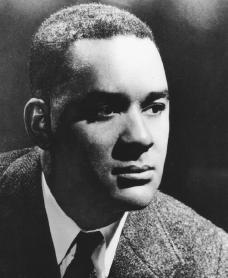Hazel Rowley: "Richard Wright; The Life and Times," February 2008
Biography of Richard Wright
Publisher's Description
Consistently an outsider—a child of the fundamentalist South with an eighth-grade education, a self-taught intellectual, a black man married to a white woman—Richard Wright nonetheless became the unparalleled voice of his time. The first full-scale biography of the author best known for his searing novels Black Boy and Native Son, Richard Wright: The Life and Times brings the man and his work—in all their complexity and distinction—to vibrant life. Acclaimed biographer Hazel Rowley chronicles Wright’s unprecedented journey from a sharecropper’s shack in Mississippi to Chicago’s South Side to international renown as a writer and outspoken critic of racism.
Drawing on journals, letters, and eyewitness accounts, Richard Wright probes the author’s relationships with Langston Hughes and Ralph Ellison, his attraction to Communism, and his so-called exile in France. Skillfully interweaving quotes from Wright’s own writings, Rowley deftly portrays a passionate, courageous, and flawed man who would become one of our most enduring literary figures.
Blurbs
“Splendid. . . . Richard Wright is well written, prodigiously researched, and nicely paced, a compelling evocation of the man, his craft, and the different worlds through which he moved.”—Michael J. Ybarra, Wall Street Journal
“A welcome and illuminating work . . . [Rowley] does an outstanding job. . . . Rich and revealing.”—Megan Harlan, San Francisco Chronicle
“A magnificent biography, subtle and insightful. . . . Rowley writes with style and grace, and her research on Wright is prodigious.”—Howard Zinn, The Week
Google Book Search
References to "homosexual":
page 169: "In 1988 in her biography, Richard Wright Daemonic Genius, seventy-three=year-old Margaret Walker tried to build up a picture of Wright as homosexual."
page 269: "An affable homosexual, Davis seemed to know every artist in town."
page 494: "The characters were based loosely on people Wright knew. The narrative contains . . . an incident where an effeminate homosexual character goes to prison for stealing a hotel sheet. (Wright was thinking of Baldwin.)"
page 513: "The doctor, a slight young man with gray-blue eyes, ignored his hostess completely. Was he homosexual? Dr. Sabloniere wondered. Or was he extremely introverted."
page 561: "Auden, a homosexual himself . . ."
page 771: "Fifty years later in her biography of Wright, Margaret Walker stuck to her thesis that Wright had both homosexual and homophobic tendencies, and that he and Ted Ward were sharing each other's beds."
Reference to "homosexuals":
page 153: Notes Wright's interest in the 1924 Chicago case in which the teenage Leopold and Loeb murdered a boy. "Because the boys were homosexuals (they were sexual partners), it was widely assumed they had raped the boy before killing him."
Reference to "homosexuality":
page 429: "The sight of men holding hands in the streets or two men dancing together closely gave him 'a sense of uneasiness . . . deeper than I could control." He di not think it was homosexuality. Nevertheless, he wrote, 'my Puritan background makes me disturbed when I see anything like this so blatantly exhibited in public." Note 16 lists source.
Publication Data
Hazel Rowley, Richard Wright: The Life and Times
638 pages, 31 halftones 6 x 9 © 2001
Paper $22.50
ISBN: 9780226730387
Published February 2008
See also: Michel Fabre: "The Unfinished Quest of Richard Wright," 1993
<comments />
